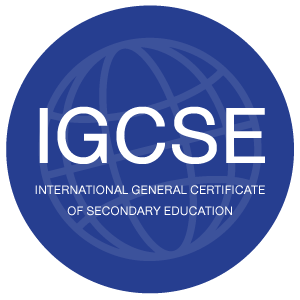The International General Certificate of Secondary Education (IGCSE) is an English language-based examination developed by the University of Cambridge International Examinations. It is the world’s most popular international curriculum for 14-16-year-olds, leading to globally recognised and valued qualifications. The IGCSE is widely available and recognised worldwide, especially in institutions with UK systems or similar. It is highly regarded by European and North American universities as well as many institutions across the Commonwealth.
IGCSE is a two-year program lasting from year 10 to year 11. At the end of year 11, students typically sit for seven to nine subjects, with a wide array of subjects available in both arts and sciences. The program culminates in an externally marked and certified examination from the University of Cambridge, with each subject certificated separately.
Exam Boards
These are three primary exam boards offering IGCSE examinations, each providing a variety of subjects and recognised qualifications worldwide.
- Cambridge Assessment International Education (CAIE): The most well-known and widely recognised IGCSE exam board, developed by the University of Cambridge International Examinations.
- Pearson Edexcel: Another major exam board that offers IGCSE qualifications, known for its rigorous standards and widespread acceptance.
- Oxford AQA: A partnership between Oxford University Press and AQA (Assessment and Qualifications Alliance), offering IGCSE qualifications with a focus on international education standards.
Subjects
One of the key strengths of the IGCSE curriculum is its flexibility, allowing students to tailor their education to their individual interests and career aspirations. Students can choose from a broad range of subjects, combining core subjects with electives that suit their strengths and future goals.
- Core subjects
- Languages (over 30 different languages are available)
- Sciences
- Biology
- Chemistry
- Physics
- Combined Science
- Coordinated Sciences (Double Award)
- Psychology
- Mathematics
- Electives
- Humanities and Social Sciences
- Creative and Professional
- Art and Design
- Music
- Drama
- Design and Technology
- Physical Education
- Business, Technical and Vocational
Assessment and examination
- Types of Assessments Used:
IGCSE assessments include written examinations, coursework, and practical assessments. The most common are written exams, conducted at the end of the two-year program. Coursework involves projects, essays, and assignments and offers a comprehensive evaluation of student skills.
- Grading System and Criteria:
The IGCSE grading scale ranges from A* to G, with A* as the highest grade. Additionally, for some boards, the grading system ranges from 1 to 9, with 9 being the highest grade. Each subject is graded separately, and students receive a certificate for each completed subject. The grading reflects students’ understanding, application of knowledge, and practical skills.
- Examination Schedules and Key Dates:
IGCSE exams are held twice yearly, in May/June and October/November. Schedules are released in advance to allow ample preparation time. The exam boards provide key dates for registration, coursework submission, and exams for effective planning.





